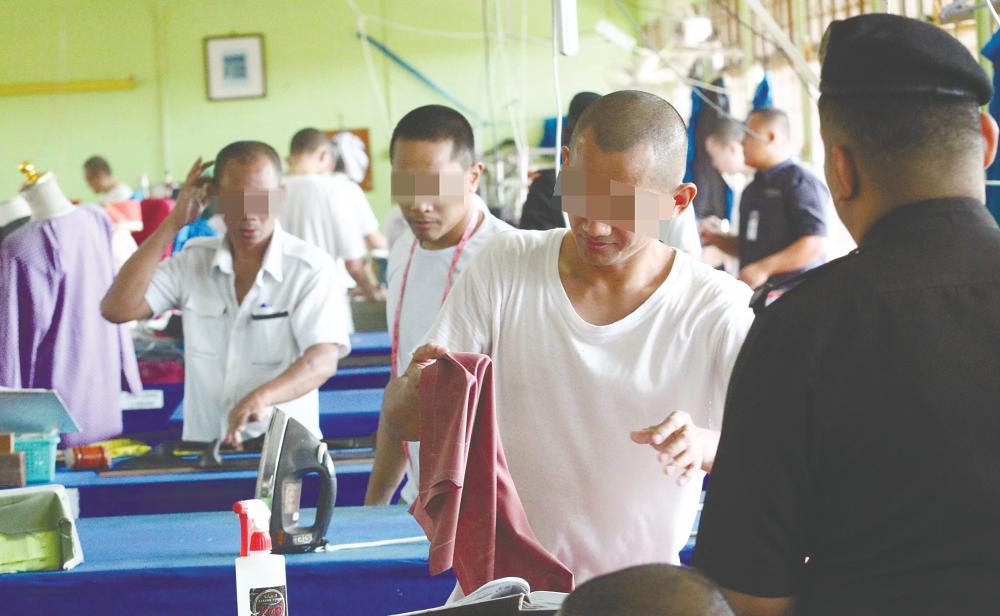Petaling Jaya: The Prisons Department has implemented several measures to manage and address potential overcrowding, including having 58,428 prisoners placed under its parole system.
Its commissioner-general Datuk Seri Nordin Muhamad said since its introduction in 2008, the parole system has proven effective in alleviating overcrowding by reintegrating inmates into society in a structured manner.
“We have 43 prisons in Malaysia with a 74,146-man capacity. However, the inmate population is at 86,639 as of Oct 4, of whom 82,144 are imprisoned while 4,495 are paroled. This means there are 7,998 more inmates than our prisons can accommodate.”
He said the growing numbers have put additional pressure on prison resources and infrastructure, causing the department to encounter numerous issues that have impacted its daily operations.
“Our main issues relate to security, overcrowding, staff shortage, disease outbreaks and difficulties with rehabilitation. We have 19 prisons that have exceeded their limits by more than 20%, which contravenes international standards.”
He said the Standard Minimum Rules for the Treatment of Prisoners mandates that every prisoner receive food, clothing and health services, leading the department to spend about RM474 million annually.
He said the Release of Prisoners on Licence Programme under Section 43 of the Prison Act 1995 is a key initiative to addressing overcrowding and allows selected prisoners to be released early under strict conditions.
“These individuals remain under supervision as they reintegrate into the community. A total of 33,195 prisoners have undergone the programme since 2020 while 2,889 are currently under the programme.”
Nordin said prisoners also undergo the Prisoners Reintegration Programme (PRP) and Prisoners Reintegration Programme for Industry (PRPI), which are designed to ensure they are equipped with the skills and mindsets needed to reintegrate into society.
He said the programmes prepare prisoners to return to society and reduce the chances of re-offending.
“A total of 26,006 prisoners have undergone the PRP, which was launched in 2019, and 2,659 are currently under the programme. As for the PRPI, 5,223 prisoners have participated in it since its launch in 2018 while 863 are currently under it.”
He said prisoners eligible for parole must have been sentenced to at least a year, completed rehabilitation programmes mandated by the Prisons commissioner general, have family support and be assured of employment upon release.
He added that each eligible prisoner must pass three levels of assessment by evaluation committees before their dossier is submitted to the Parole Board for approval.
“The Parole Board approves about 65% of monthly submissions while prisoners on licence have a 98% approval rate.”
He said there are ongoing discussions and considerations to revise the criteria or processes for granting parole to alleviate prison congestion and improve the implementation of the parole system.
“The department has received approval from the home and finance ministries to purchase former National Service Training Programme camps, which will be converted into drug cluster prisons that can accommodate 500 prisoners.”
In October 2023, Home Minister Datuk Seri Saifuddin Nasution Ismail said some 16,000 prisoners would be considered for home detention and suspended sentences as alternative punishments to reduce congestion.
However, Nordin said the option is in the drafting stage and requires refinement before it can be fully implemented as part of the criminal justice system.
ALSO READ: Cost of living, prison overcrowding focus of Dewan Rakyat today









